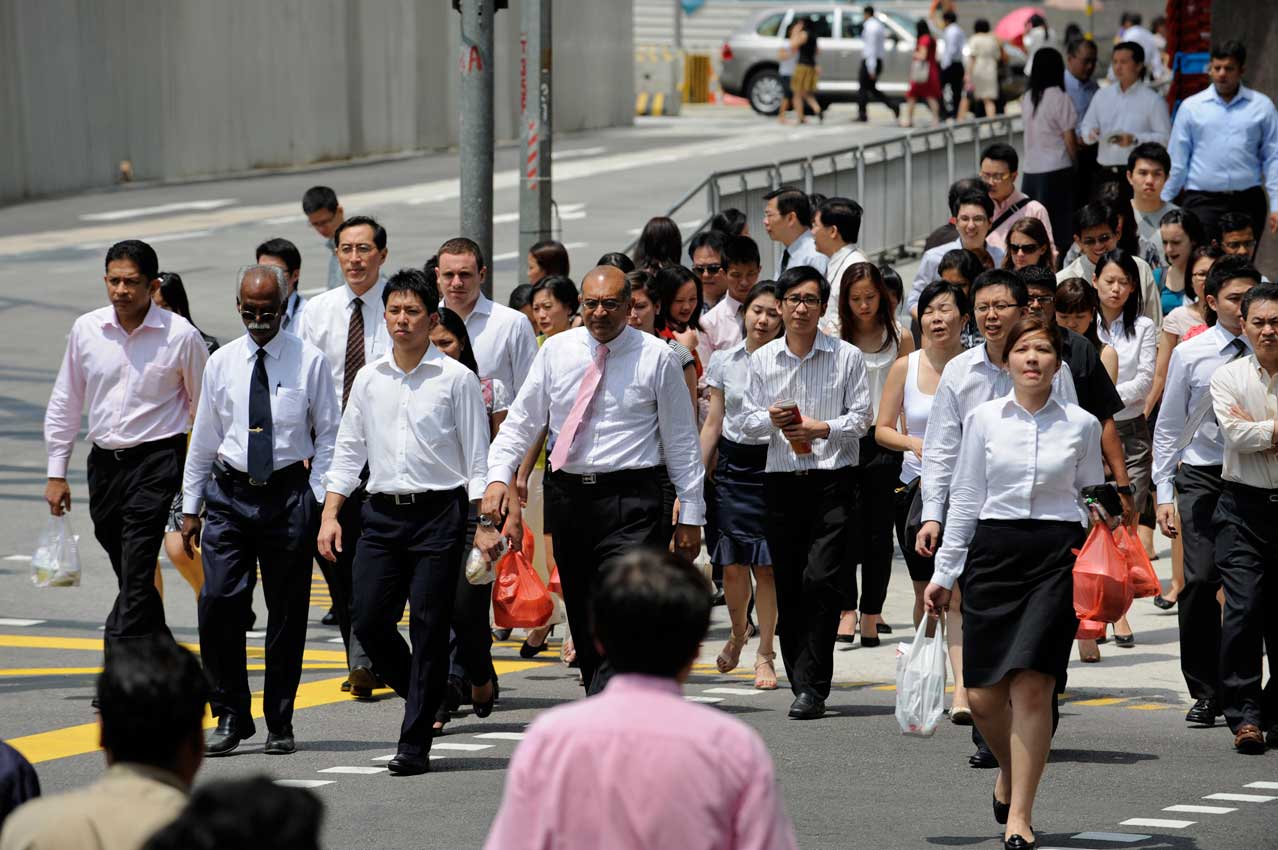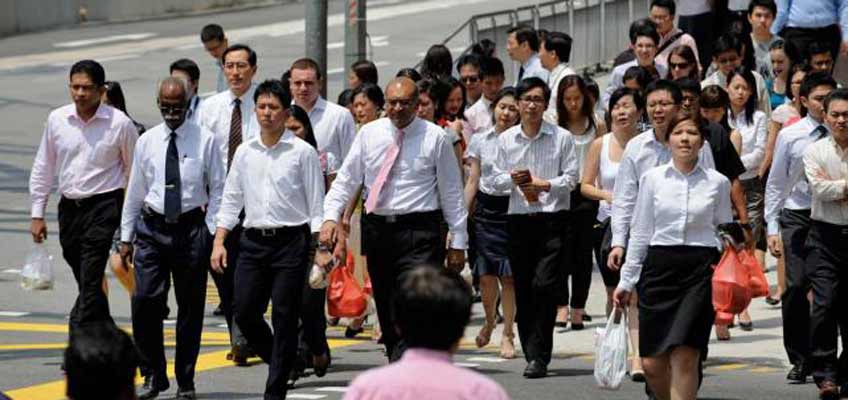SINGAPORE – Slowing economic growth looks set to have an effect on coming salary increases, with employees in Singapore expected to receive the fifth-lowest pay raises in the region in 2017, a new report has revealed.
According to findings from advisory firm Willis Towers Watson’s (WTW) 2016 Asia Pacific Salary Budget Planning Report, base salaries in the city state are expected to rise just four per cent in 2017, before factoring in inflation.
Only Australia and New Zealand (3 per cent each) and Japan (2.3 per cent) are expected to see lower pay increases.
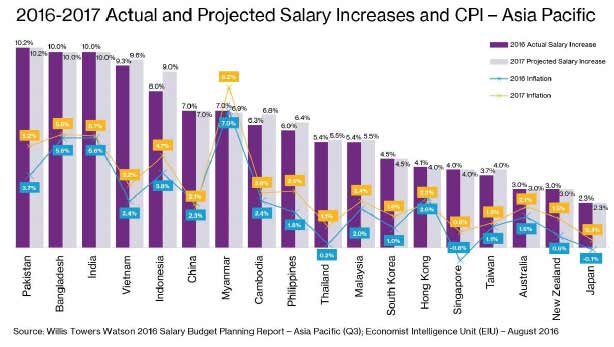
Recently, Deputy Prime Minister Tharman Shanmugaratnam noted that Singapore’s economy will be “in for a tough period”, and the gloomy economic climate in 2016 has already seen earnings in a number of industries take a hit.
Hong Kong salaries are also expected to go up by 4 per cent. However, higher inflation means that salary increases at the Chinese Special Administrative Region are set to be much lower in real terms (1.7 per cent) than in Singapore (3.2 per cent).
The findings are based on a survey conducted in July 2016, which saw approximately 4,000 responses from companies across 22 Asia Pacific markets.
Across the region, salaries are projected to rise 5.9 per cent in 2017. In 2016, wages had been projected to rise 6.4 per cent, but in reality rose just 5.8 per cent.
Once average inflation for the Asia Pacfic region of 3 per cent is taken into account, the projected salary increases in real terms for 2017 will be 2.9 per cent, down from 3.5 per cent in 2016.
Of the countries included in the study, South Asian countries Pakistan (10.2 per cent), Bangladesh (10 per cent) and India (10 per cent) are expected to see the highest pay rises next year.
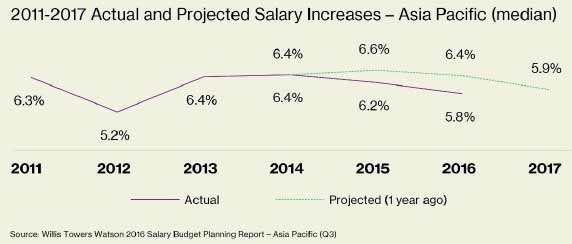
Mr Sambhav Rakyan, data services practice leader for Asia Pacific at WTW, said that there was a trend of lower salary increase budgets across much of the region, as companies are being more prudent and seeking to keep costs low.
“Back around 2012 and 2013, companies in Asia pumped a lot of money into their salary budgets and drove salaries up, but they didn’t see the revenues rise in tandem, so it made such increases unsustainable,” he explained.
High performers rewarded
Meanwhile, organisations are increasingly prioritising their top performers when it comes to pay raises.
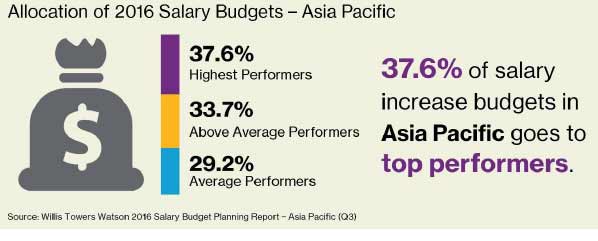
According to the report, 37.6 per cent of an organisation’s salary increase budgets are going to the top performers, while 33.7 per cent is shared by above average performers. Just 29.2 per cent are allocated to average performers.
“Nowadays people are looking for other options besides a standard annual pay rise. Employees are looking at how and when their performance is rated, and also for more flexibility in their benefits packages,” noted Ms Maggy Fang, head of talent and rewards at WTW Asia Pacific.
She added that companies should adopt more holistic approaches to remuneration by considering total rewards factors such as career development opportunities, recognitions, ongoing communications, and flexible working arrangements.
seanyap@sph.com.sg
